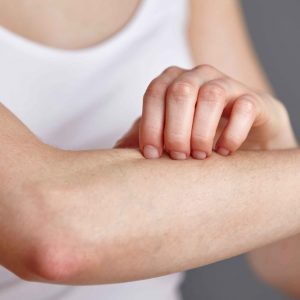Stress is commonly described in terms of the hormones that are released by the adrenal glands. While these glands are certainly an important part of the stress response, a little known fact is that your skin can produce the same hormones in response to stress. Our knowledge of the skin has developed significantly in recent times, and we now have a greater understanding of just how amazing it truly is.
The skin is now thought of as having the intelligence of the brain. It has the ability to react to environmental changes independent of the brain. It even has a sense of time as demonstrated by skin cells ability to function differently throughout the day and night. The skin can produce hormones such as estrogen, cortisol, thyroid hormone, as well as the neurotransmitters melatonin and seretonin.
What is perhaps most fascinating is the relationship between the skin and the mind. There are a number of examples that highlight just how emotional trauma can manifest in the skin. Cases of people who try almost every medicinal skin cream and lotion to remedy a skin lesion, and where the lesion disappears completely after psychological intervention. These examples have led to the emergence of a field called psychodermatology which explores the mind body relationship specifically in skin.
With this in mind, it is important to make sure that you look after your skin. Few people are guided on how to care for any scars they sustain through either surgery or injury. Scars significantly alter the skin and can affect the way you move. Numbness around a scar reduces the amount of information that the brain receives about the area around the scar. All movement in the body uses the input from the skin and joint sensors to direct it’s output.
How do we care for the skin?
Stay Hydrated
The first step is staying hydrated by ensuring your water intake is sufficient. Of course water and nutrition go hand in hand so a balanced diet is vital too.
Protect it
The second step is protecting it from harsh chemicals and radiation. While most people automatically think about sun exposure, it is important to consider the chemicals your skin is exposed to in normal daily activities such as cleaning.
Look after your scars
Finally, as mentioned, make sure to look after any scars. Gentle massage around a scar to make it more “sensitive” can have profound effects.

